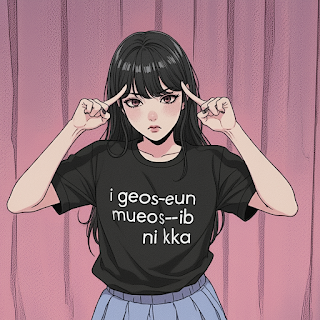Understanding the phrase What is this? in Korean: A guide to learning Korean
The phrase What is this? in Korean is translated as
이게 뭐예요 (I ge mwo ye yo?), and is a basic phrase that
will help you navigate everyday conversations as you learn Korean.
This Korean phrase is used frequently in a variety of contexts,
especially when asking for clarification on an object or situation or
when looking for information.
When foreign learners of Korean begin their Korean studies, mastering the pronunciation and usage of this phrase
will greatly improve their communication skills.
Contextual Background
Korean is famous for its complex honorific system and
speech patterns, which add formality to conversations.
It is important to understand how to use
what is this? (i ge mwo ye yo?) 이게 뭐예요 in both formal and
informal situations when learning Korean.
Formal speech (polite speech):
When speaking in a more formal setting or to a person of higher status,
you can say, What is this? (igeos-eun mueos-ib ni kka?). 이것은 무엇 입니까
This Korean version adheres to a higher level of politeness and is appropriate for professional settings, public speaking, or speaking to older people.
Informal speech (informal speech):
With friends or younger people, you can choose, What is this? (ige mwo ya).이게뭐야
This casual form conveys a friendly tone and is appropriate in a relaxed atmosphere.
Practical examples
Shopping:
When you see an unfamiliar item in a store, you can ask the clerk,
What is this? (I ge mwo ye yo?) 이게 뭐예요 for more information.
Eating:
When you are eating at a Korean restaurant and
come across a dish you don’t know, you can ask
, What is this? (I ge mwo ye yo?) 이게 뭐예요 Asking,
can help you learn more about the material.
Daily conversation:
When communicating with friends, asking,
What is this? (I ge mwo ye yo?) 이게 뭐예요 about a new or interesting topic can spark
discussion and deepen your understanding of Korean culture.
Conclusion
Understanding the phrase What is this? (I ge mwo ye yo?) 이게 뭐예요
in Korean while studying Korean will not only
help you communicate verbally, but also enhance your cultural immersion.
Whether in formal situations or among friends,
using variations of this phrase can reflect respect and
understanding of the social dynamics in Korean communication.
As Korean learners progress, they should integrate
this phrase into their daily lives,
try it out in conversation, and observe how
native speakers use it in a variety of contexts.
Ultimately, by embracing both the formal and
informal aspects of Korean, Korean learners
will be able to create more meaningful interactions
in their quest to learn Korean.





